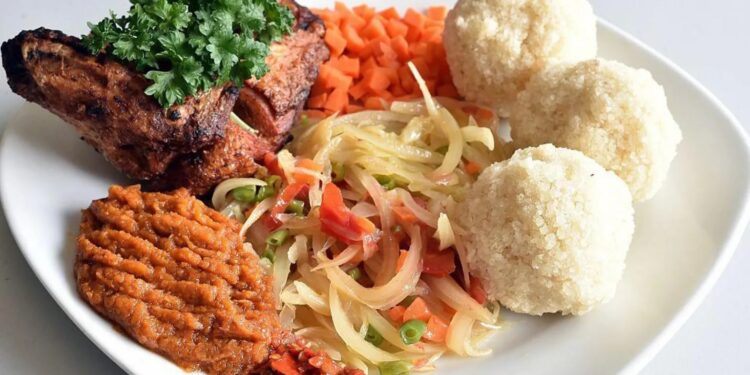By John Ikani
Ivory Coast’s beloved dish, attiéké, made from fermented cassava flour, has earned recognition as part of Unesco’s intangible cultural heritage.
Pronounced “atchekay,” this dish resembles couscous and is crafted from cassava roots. Loved by many, it frequently features on plates for breakfast, lunch, and dinner.
Often called “Ivorian couscous,” attiéké is traditionally served with grilled fish. Though it originated centuries ago in coastal communities of Ivory Coast, it has since become a staple across West Africa.
Speaking at Unesco’s cultural heritage session in Paraguay, Ivory Coast’s representative Ramata Ly-Bakayoko described attiéké as “deeply rooted in the daily lives of its communities.”
Japanese sake, a traditional grain-based alcoholic drink, also joined the list of cultural treasures this year.
In Ivory Coast, attiéké holds a central place at important events, including weddings, baptisms, funerals, and community gatherings.
More than just food, it has become a vital source of income and a means of financial independence, especially for women.
The preparation of attiéké, traditionally a women-led activity, involves a lengthy, multi-step process that has also been recognized on Unesco’s list.
The process starts with peeling and grating cassava, which is then blended with pre-fermented cassava for flavor.
The mixture is pressed to remove excess starch, hand-processed, dried, and steamed to perfection.
It is commonly sold in local markets, neatly packed in single-serving plastic bags for easy distribution.
At its core, attiéké serves as a cultural thread, weaving together generations through shared traditions.
Mothers teach daughters the recipes and techniques, forming what Ms. Ly-Bakayoko called “a pillar of their identity and that of the whole of Ivory Coast.”
Unesco’s initiative aims to safeguard such traditions, emphasizing their value to global heritage. Recognizing attiéké highlights its cultural significance on an international scale.
Still, the dish has sparked controversy.
In 2019, outrage erupted in Ivory Coast after Florence Bassono of Burkina Faso won an award for her brand, Faso Attiéké, at a prestigious agricultural fair in Abidjan.
Ivorians were incensed, seeing their national treasure celebrated under a foreign name.
To protect attiéké’s identity, the African Regional Intellectual Property Organization recently registered a collective trademark, limiting its name to cassava products made in Ivory Coast, similar to how champagne is tied to its French origins.



































